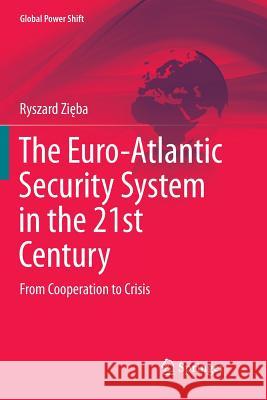The Euro-Atlantic Security System in the 21st Century: From Cooperation to Crisis » książka
topmenu
The Euro-Atlantic Security System in the 21st Century: From Cooperation to Crisis
ISBN-13: 9783030077280 / Angielski / Miękka / 2018 / 288 str.
Kategorie BISAC:
Wydawca:
Springer
Seria wydawnicza:
Język:
Angielski
ISBN-13:
9783030077280
Rok wydania:
2018
Wydanie:
Softcover Repri
Numer serii:
000441674
Ilość stron:
288
Waga:
0.42 kg
Wymiary:
23.39 x 15.6 x 1.6
Oprawa:
Miękka
Wolumenów:
01
Dodatkowe informacje:
Wydanie ilustrowane











